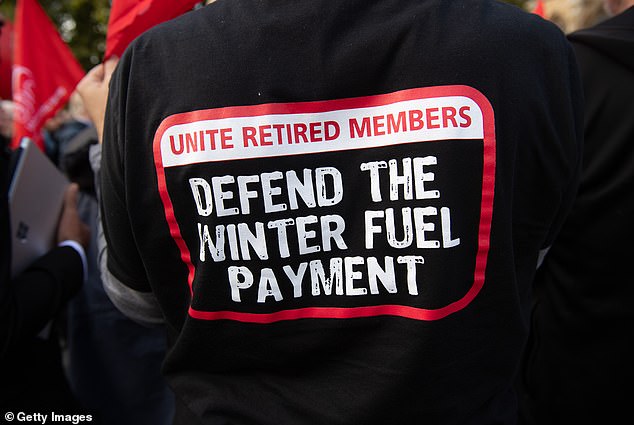To be fair, Keir Starmer did better than Liz Truss. Her benighted premiership lasted 49 days. His has effectively ended after 11 months, almost six whole terms in Truss Years.
But make no mistake, Starmer’s premiership is indeed over. Yes, he’ll stumble on, ‘in office, but not in power’ to borrow Norman Lamont’s evergreen description of the steady, irreversible erosion of Prime Ministerial authority.
But politics has a three-strikes rule. One major U-turn is unfortunate. Two seems like carelessness. Three within your first year of government? As Starmer is about to realise, that’s terminal.
Not least because it won’t be the last. Or anywhere close. Winter fuel. The Rape Gangs inquiry. Disability Benefits. These are just the most recent examples of Sir Keir’s callowness.
Still to come is the two-child benefit U-turn. ‘If you have more than two children at the moment you won’t get benefits. Will that change under a Labour government?’ he was asked by Laura Kuenssberg prior to his election victory. ‘We’re not changing that policy,’ he replied. But he will.
Then there is the forthcoming mother of all U-turns, on tax. ‘Public services need to live within their means, because I’m really clear, I’m not coming back with more borrowing and more taxes,’ Rachel Reeves told the CBI last November. But she will.
It usually takes a single, momentous event for a sitting prime minister to reach that fatal inflection point where Downing Street’s freeholder becomes its squatter. For John Major it was Black Wednesday. For Tony Blair, Iraq. Cameron, Brexit. Boris, Partygate.
But for Keir Starmer, impotency has been embraced by simply doing what comes naturally.
Just being Keir Starmer.

For Keir Starmer, impotency has been embraced by simply doing what comes naturally. Just being Keir Starmer, writes Dan Hodges
Earlier in the week, as the various Downing Street factions opened up on one another to deflect and assign blame for the welfare fiasco, the Financial Times published this. ‘Pat McFadden, cabinet office minister, has warned the Prime Minister of the danger of relentlessly targeting Reform-inclined voters, putting him at odds with [Morgan] McSweeney [the PM’s chief of staff].’
It added: ‘It’s never a good idea to choose between one group of voters and another.’
Ever since Starmer entered No 10, I’ve received identical briefings. Morgan McSweeney thinks this. Sue Gray thinks that. Pat McFadden thinks the other. Rachel Reeves insists on cuts to X. Angela Rayner demands policy concessions only. Lord Hermer is warning against this approach. Wes Streeting is lobbying for that one. Ed Miliband is happy with either, so long as he can build a new wind farm next to it. Keir Starmer barely features.
What the putative Prime Minister of the United Kingdom thinks, believes or advocates is seemingly irrelevant.
No one ever defers to him, or pretends he has agency.
Starmerism doesn’t even exist as an abstraction within Starmer’s own Government. And that’s apparently how he likes it.
Aside from his international jaunts, Sir Keir remains completely detached from his own administration.
The complaint articulated by the welfare rebels that Starmer is ‘never here’ was one I first heard levelled by cabinet ministers months ago. Even when he does focus on the Government’s domestic agenda, his interventions are ephemeral.

Winter fuel. The Rape Gangs inquiry. Disability Benefits. These are just the most recent examples of Sir Keir’s callowness
‘You’ll think you’ve got him to sign something off,’ one minister explained.
‘Then you start implementing it, and suddenly get a phone call saying “stop”. This isn’t what we want.’ But you don’t need to take the word of Starmer’s colleagues.
Just listen to the man himself. Last month he delivered his Island of Strangers speech on immigration. ‘People who like politics will try to make this all about politics,’ Starmer claimed, ‘about this or that strategy, targeting these voters, responding to that party. No. I am doing this because it is right, because it is fair, and because it is what I believe in.’
But on Friday he dropped the pretence. He hadn’t actually read the speech properly. He now disavowed the Island of Strangers line – ‘I deeply regret using it.’ Most significantly, he then wanted to distance himself from his claim that immigration had done ‘incalculable damage’ to the country. ‘This wasn’t the way to do this in the current environment,’ he said.
In other words, he didn’t think it was right, fair or believe it at all. So if Keir Starmer doesn’t actually believe what Keir Starmer’s saying, why should anyone else?
They self-evidently won’t. Which is why his premiership is dead. Starmer’s allies and enemies – foreign and domestic – now know if you pressure him enough, he will cave. As one minister told me: ‘He keeps sending MPs out to defend him. But now no one will do it. Who’s going to make the case for tough choices when they know there’s a U-turn coming?’
Honesty – a key component of the Starmer brand – has also been permanently trashed.
By his own admission, his speeches, promises and policy statements are valueless.
As has any pretence of constructing a moral case for his agenda. The squalid horse-trading with his backbenchers over which MS and Parkinson’s sufferers can be supported to wash and cook for themselves, and which cannot, has seen to that.
I’ve been fortunate enough to meet Sir Keir on a number of occasions. He is a decent, grounded, well-meaning man.
But it’s clear the pressures of what is an almost intolerably difficult job are already bearing down upon him. In an interview with The Observer he reveals his anger at criticism of his wife’s gifts from Lord Alli, the impact of the death of his brother in December and the firebomb attacks on his North London home. ‘I was really, really worried… Vic [his wife] was really shaken up as, in truth, was I.’
These attacks and bereavement would test any normal person. But being leader of a major Western democracy is not a normal job. Margaret Thatcher addressed her conference hours after the Brighton bombing. Barack Obama delivered his final speech before being elected President shedding tears over the passing of his mother. Donald Trump shook his fist defiantly at the gunman who had just bloodied him.
Keir Starmer, for all his qualities, is not a leader. His political opponents sense it. His own ministers and MPs realise it. And I suspect deep down, he is starting to recognise it himself.
So we’ll carry on for a while. More U-turns. A botched re-shuffle. The inevitable ‘re-launch’.
But the Prime Minister’s political trajectory is now set. And it is angled steeply downwards.
The Starmer premiership is over. If it ever really began.












